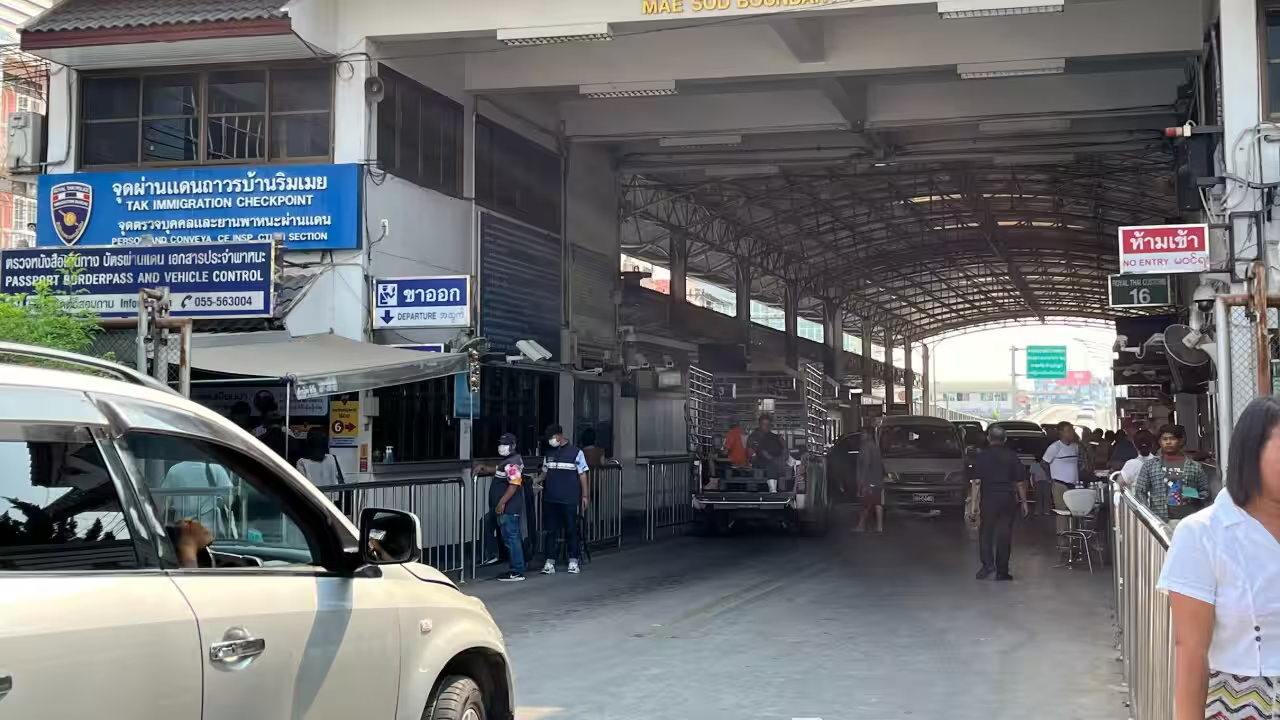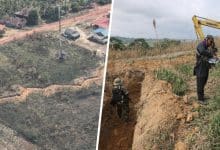Myanmar’s military regime loses grip: Thailand on high alert

The military coup in Myanmar in 2021 has ignited ongoing resistance from armed rebel groups, causing the military regime to lose control over multiple strongholds. The recent aggressive rebel offensive in Myawaddy, a significant border town opposite Tak’s Mae Sot district in Thailand, led to the displacement of thousands of individuals and raised fears of a security and humanitarian crisis.
In response, Prime Minister Srettha Thavisin directed the Foreign Affairs Ministry and the armed forces to communicate with all involved parties, demanding to prevent the conflict from reaching Thailand.
The government has also established countermeasures to manage the anticipated surge of refugees. Foreign Affairs Minister Parnpree Bahiddha-Nukara visited Mae Sot on April 12 to survey the situation and plan accordingly. International affairs and security experts were interviewed regarding the escalating violence and the government’s management of the conflict.
Associate Professor of Southeast Asian Studies at Thammasat University, Dulyapak Preecharush, explained that Myanmar’s military government is determined to retain control over towns and routes crucial for economic and military purposes.
“The town of Myawaddy is the gateway of the eastern border, so control of the town can have influence over the economy and livelihoods of people in Yangon. The military government will retake the town if it falls into the hands of any opposing group.”
Dulyapak also suggested that there may be ongoing negotiations, with the absence of advancements in certain areas like the northern border suggesting potential talks. He further explained that China has been instrumental in facilitating dialogues between the military and opposition groups along the Myanmar-Chinese border, but conflict persists elsewhere.
International relations and security affairs expert, Panitan Wattanayagorn, highlighted that the current situation at the Thai-Myanmar border indicates an escalation of efforts by armed ethnic groups to seize control over certain areas. He also noted the weakening of the regime due to growing resistance, difficulties in providing supplies and support to troops, and the frail economy due to the Covid-19 pandemic and sanctions, reported Bangkok Post.
Piti Srisangnam, an academic at Chulalongkorn University’s ASEAN Studies Centre, proposed a six-point plan to the government emphasising the importance of mediation and humanitarian aid.
This includes creating a war room at the Government House and a forward command centre in the border province, establishing a crisis or strategic communication team, and working closely with Laos, the current chair of ASEAN, the ASEAN Secretariat and the ASEAN troika to find a peaceful resolution to the conflict.
Latest Thailand News
Follow The Thaiger on Google News:


























